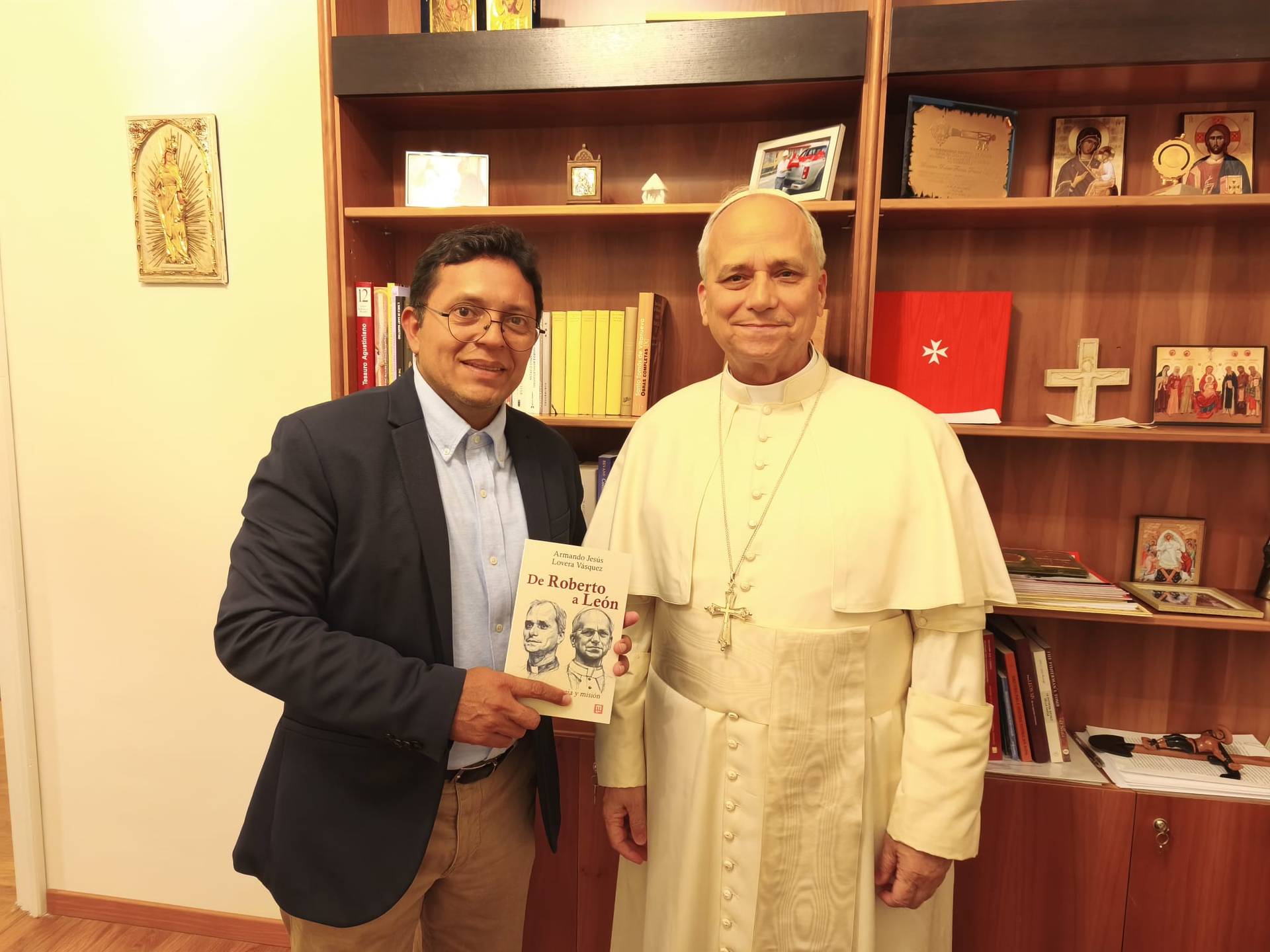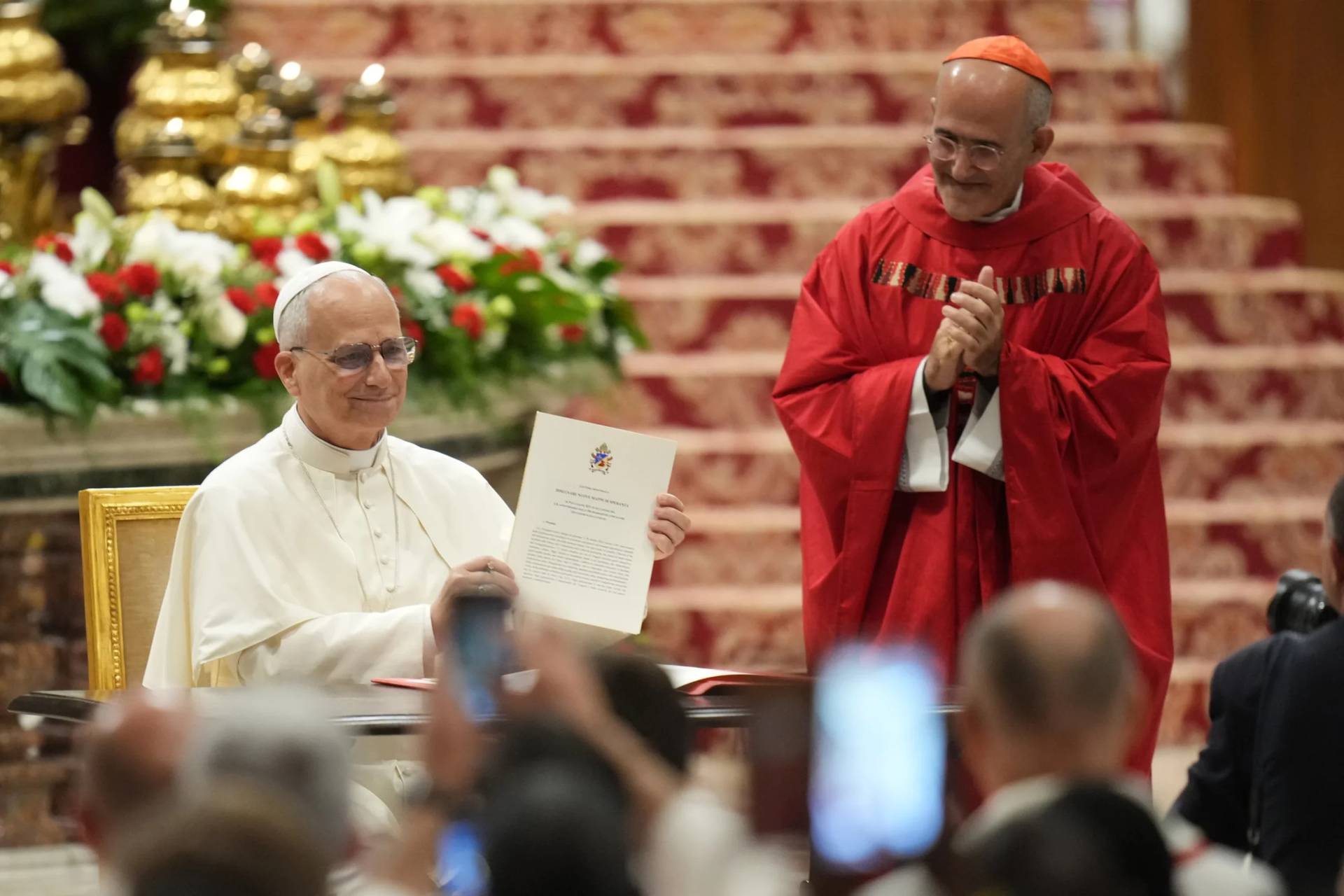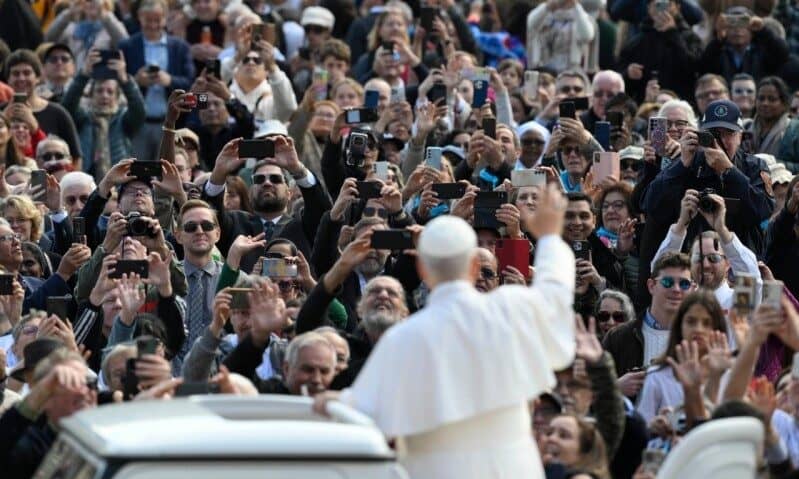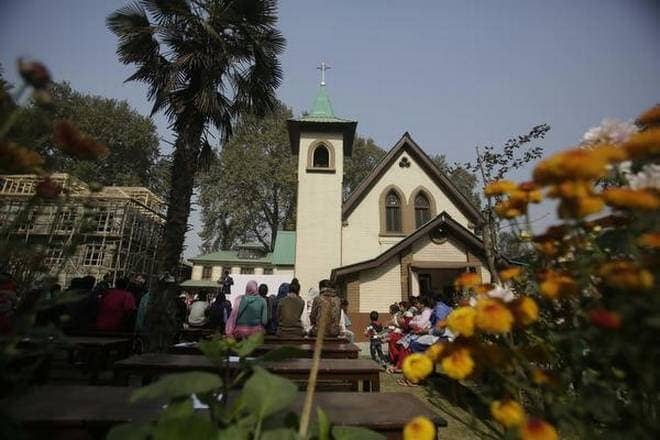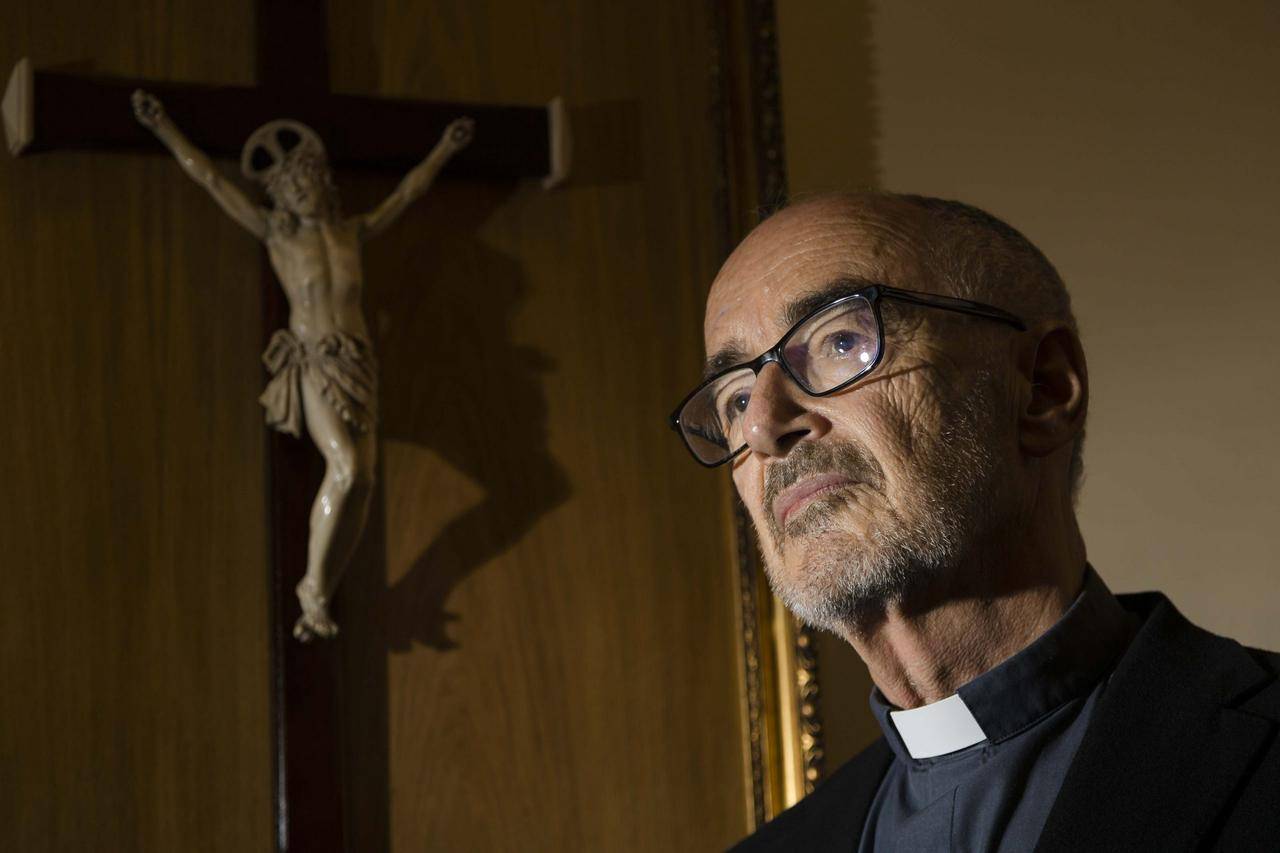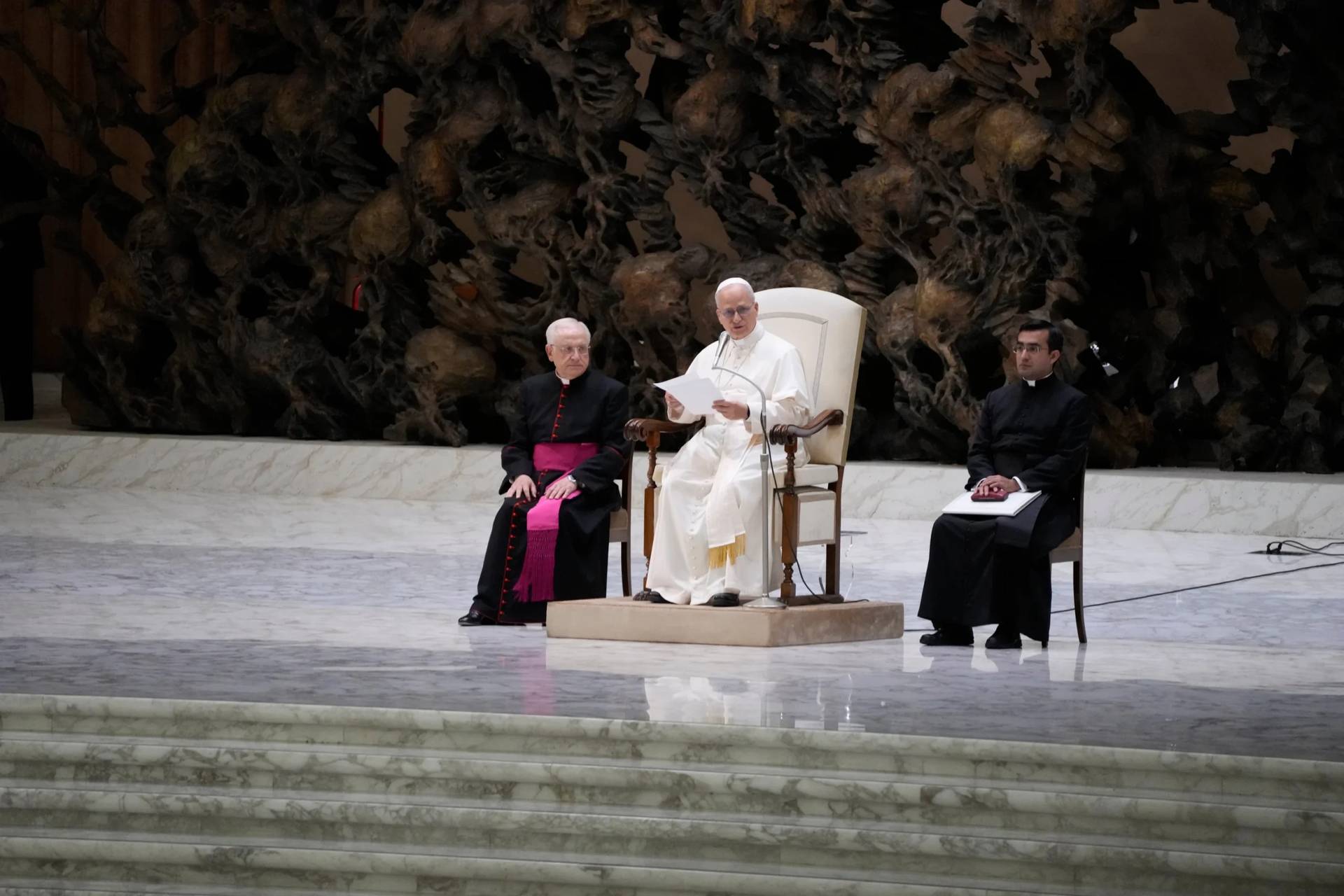ROME – Pope Francis on Thursday sent a global message on the challenges and benefits of the digital world, warning that despite the ability to form communities through various social platforms, there is also the risk of isolation and alienation of those who don’t share the same ideas or beliefs.
“The Net is an opportunity to promote encounter with others, but it can also increase our self-isolation, like a web that can entrap us,” he said, noting that young people are especially susceptible to the illusion that digital connections can satisfy their need for genuine relationships.
With this mentality, there is a danger of becoming “social hermits” who risk “alienating themselves completely from society,” he said, adding that the situation “reveals a serious rupture in the relational fabric of society, one we cannot ignore.”
Titled “We are members of one another: From social network communities to the human community,” the pope’s message for the World Day of Social Communications was signed on the Jan. 24 Catholic feast of St. Francis de Sales, the patron saint of journalists.
Published the same day, the message follows the recent launch of a new profile for Pope Francis on the “Click to Pray” app, dedicated to sharing his monthly prayer intentions and building a global prayer network that can fit in one’s hand.
RELATED: Pope Francis becomes the latest believer to ‘Click to Pray’ on social media
In his message, Francis said the internet is a source of knowledge and previously “unthinkable” relationships and connections, however, it also poses risks, and has widely been recognized as “one of the areas most exposed to disinformation and to the conscious and targeted distortion of facts and interpersonal relationships, which are often used to discredit.”
Often the internet is used to gain and manipulate data for political or economic ends, he said, and pointed to the growing problem of cyberbullying, which he said impacts roughly one in four youth.
Using the image of an actual net as a metaphor for the internet, Francis said the structure – made up of different lines that intersect and provide stability – are reminiscent of a human community, which is stronger to the extent that it is “cohesive and supportive” and based on truth and objectivity.
“In the present scenario, social network communities are not automatically synonymous with community,” but are instead “divided into categories based on common interests,” he said, noting that internet users tend to define themselves “starting with what divides us rather than with what unites us.”
Doing this, he said, naturally gives rise “to suspicion and to the venting of every kind of prejudice (ethnic, sexual, religious and other),” and encourages groups to exclude diversity.
Even in the digital world, he said, there are groups that “nourish unbridled individualism which sometimes ends up fomenting spirals of hatred. In this way, what ought to be a window on the world becomes a showcase for exhibiting personal narcissism.”
As a remedy, Francis said exercising responsibility and building genuine relationships online that are based on one’s authentic identity essentially comes down to seeing one another as an extension of oneself.
Using St. Paul’s metaphor of the Church as being many parts of one body, he said the image is an invitation “to put away falsehood and speak the truth: The duty to guard the truth springs from the need not to belie the mutual relationship of communion.”
“Truth is revealed in communion,” he said. “Lies, on the other hand, are a selfish refusal to recognize that we are members of one body; they are a refusal to give ourselves to others, thus losing the only way to find ourselves.”
Francis said this perspective is especially important for Christians, who ought to see each other as members of the same community, allowing them to see others not as competitors or enemies, but as human beings.
Current challenges and opportunities offered by the internet and social networks are an invitation to invest more in one’s relationships, and to recognize that humanity has an interpersonal nature, “including in and through the network.”
This is especially important for Christians, he said, and using the image of the Trinity as an example, said that “in order to be myself I need others.”
“I am truly human, truly personal, only if I relate to others…Our life becomes more human insofar as its nature becomes less individual and more personal,” he said, explaining that the image of the body is a reminder that using social media is complementary to a personal, human encounter.
“If the Net is used as an extension or expectation of such an encounter, then the network concept is not betrayed and remains a resource for communion,” he said, adding that the internet ought to be a place where people are liberated and not trapped.
The Church, he said, is also a network where unity “is based not on ‘likes,’ but on the truth, on the ‘Amen,’ by which each one clings to the Body of Christ, and welcomes others.”
Currently on an official Jan. 23-27 visit to Panama for the global World Youth Day gathering, Francis has often spoken of the benefits and risks of technology and social networks in his audiences with young people and is likely to bring the topic up again during this week’s events.







